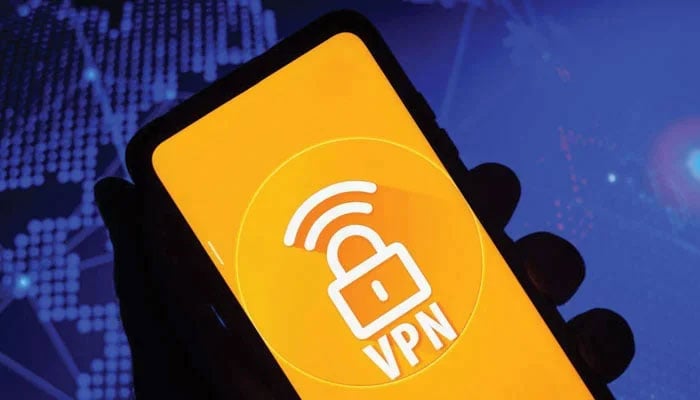Virtual, Private, Not-working
Country’s VPN registration process began in 2010 and 20,500 VPNs have been successfully registered
The current government is doing its best to prove wrong those who believe that Pakistan’s internet woes could not possibly get worse. Throttling access to X (formerly Twitter), sporadic blackouts and slow speeds are just not enough. Virtual Private Networks (VPNs), which have emerged as a way to navigate the net with relative freedom in recent months, are now also feeling the bite. The Pakistan Telecommunication Authority (PTA) has reportedly begun the process of blocking unregistered VPNs in the country, as part of its efforts to regulate internet security and ensure the safety of users. As a result, over two dozen VPNs were temporarily blocked by the government during a six-hour firewall trial this past Sunday (November 10) and many are still not functioning properly, prompting people to engage in a process of trial and error to see which ones still work. At this stage, it is hard to tell whether the VPNs that stopped working and/or are still not working were indeed the ones targeted by the government and whether the effort to block some VPNs had a knock-on effect on those that were not targeted. During the firewall trial period, websites which are not even restricted, like YouTube, also experienced slowdowns and internet services in general were even slower than has become the norm over the past year or so.
The country’s VPN registration process began back in 2010 and approximately 20,500 VPNs have been successfully registered, with the authorities now focusing on accelerating the white-listing of VPNs. The PTA has also urged businesses – including IT companies, software houses, freelancers and banks – to register their IPs for continued VPN access, ensuring uninterrupted internet services for authorised users. Formalising internet services and access by increasing registration and whitelisting is not necessarily a bad move and could even encourage greater compliance with internet laws and regulations in the long run. However, one would hope that all of this could be done without disrupting reliable internet access for large swathes of users across the country. It also does not help that the recent acceleration in internet regulation has not been very transparent, with people and businesses only learning about what is going on after-the-fact. That these moves come amidst a crackdown on social media also damages their credibility. Right now, many feel as if they are not allowed to do anything online without the government constantly looking over their shoulder.
No one is understating the problems posed by fake news and online misinformation, which have caused real harm in Pakistan. However, such blanket throttling of internet services and the desire to ramp up monitoring of social media platforms even if it requires blocking access only makes it feel as if the government wants more control over what people can see and post online without any real regard for online safety and privacy, let alone how well the internet actually works. Picture a checkpost guarding access to a bone-dry valley that no one is even trying to get into. If the approach towards internet regulation remains on its current path, the state may well find itself in an analogous position, guarding the security of a barren digital landscape that no individual user or business trusts to provide the speed and seamless access they desire.
-
 Extreme Cold Warning Issued As Blizzard Hits Southern Ontario Including Toronto
Extreme Cold Warning Issued As Blizzard Hits Southern Ontario Including Toronto -
 Lana Del Rey Announces New Single Co-written With Husband Jeremy Dufrene
Lana Del Rey Announces New Single Co-written With Husband Jeremy Dufrene -
 Ukraine-Russia Talks Heat Up As Zelenskyy Warns Of US Pressure Before Elections
Ukraine-Russia Talks Heat Up As Zelenskyy Warns Of US Pressure Before Elections -
 Lil Nas X Spotted Buying Used Refrigerator After Backlash Over Nude Public Meltdown
Lil Nas X Spotted Buying Used Refrigerator After Backlash Over Nude Public Meltdown -
 Caleb McLaughlin Shares His Resume For This Major Role
Caleb McLaughlin Shares His Resume For This Major Role -
 King Charles Carries With ‘dignity’ As Andrew Lets Down
King Charles Carries With ‘dignity’ As Andrew Lets Down -
 Brooklyn Beckham Covers Up More Tattoos Linked To His Family Amid Rift
Brooklyn Beckham Covers Up More Tattoos Linked To His Family Amid Rift -
 Shamed Andrew Agreed To ‘go Quietly’ If King Protects Daughters
Shamed Andrew Agreed To ‘go Quietly’ If King Protects Daughters -
 Candace Cameron Bure Says She’s Supporting Lori Loughlin After Separation From Mossimo Giannulli
Candace Cameron Bure Says She’s Supporting Lori Loughlin After Separation From Mossimo Giannulli -
 Princess Beatrice, Eugenie Are ‘not Innocent’ In Epstein Drama
Princess Beatrice, Eugenie Are ‘not Innocent’ In Epstein Drama -
 Reese Witherspoon Goes 'boss' Mode On 'Legally Blonde' Prequel
Reese Witherspoon Goes 'boss' Mode On 'Legally Blonde' Prequel -
 Chris Hemsworth And Elsa Pataky Open Up About Raising Their Three Children In Australia
Chris Hemsworth And Elsa Pataky Open Up About Raising Their Three Children In Australia -
 Record Set Straight On King Charles’ Reason For Financially Supporting Andrew And Not Harry
Record Set Straight On King Charles’ Reason For Financially Supporting Andrew And Not Harry -
 Michael Douglas Breaks Silence On Jack Nicholson's Constant Teasing
Michael Douglas Breaks Silence On Jack Nicholson's Constant Teasing -
 How Prince Edward Was ‘bullied’ By Brother Andrew Mountbatten Windsor
How Prince Edward Was ‘bullied’ By Brother Andrew Mountbatten Windsor -
 'Kryptonite' Singer Brad Arnold Loses Battle With Cancer
'Kryptonite' Singer Brad Arnold Loses Battle With Cancer




